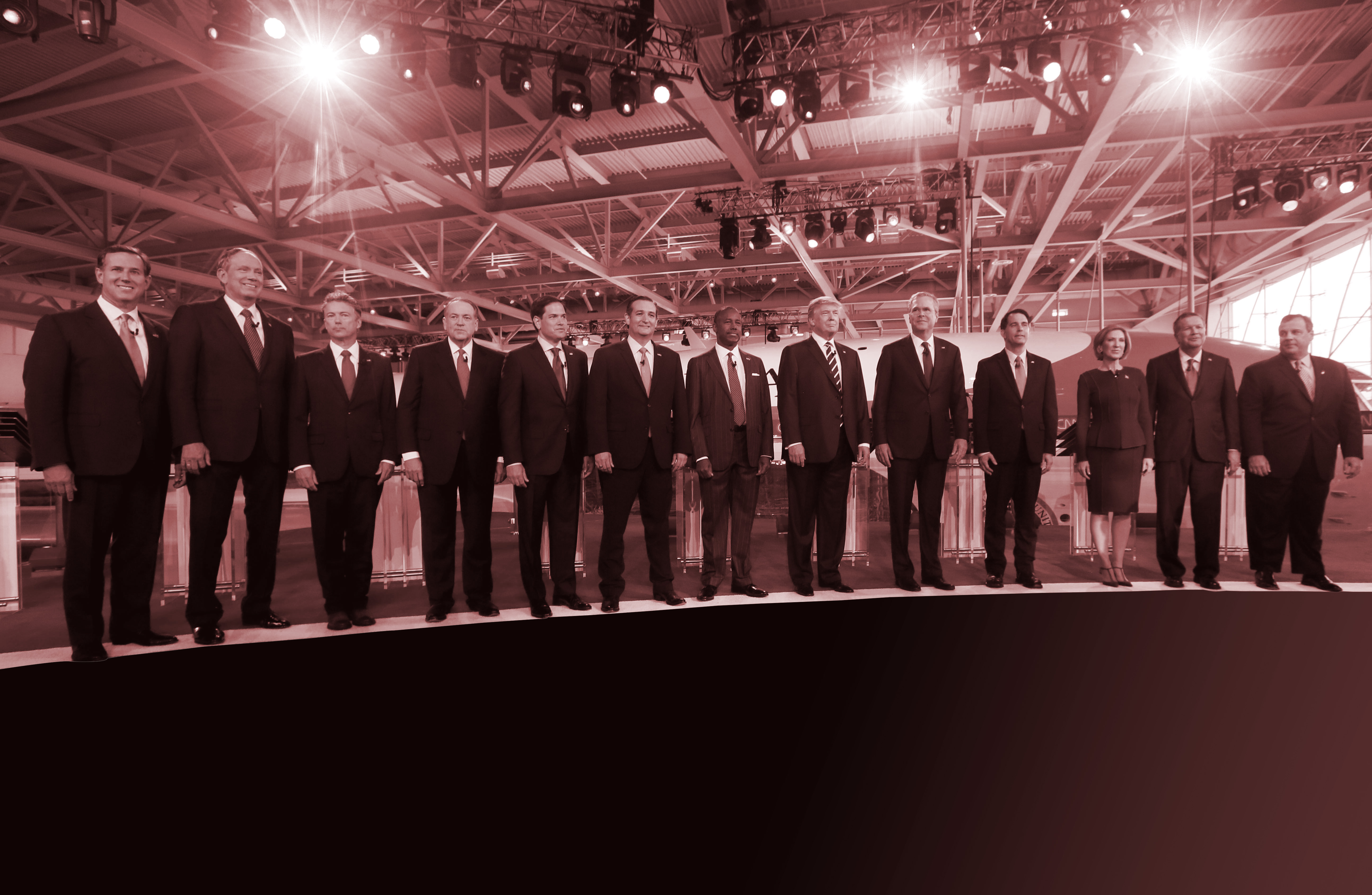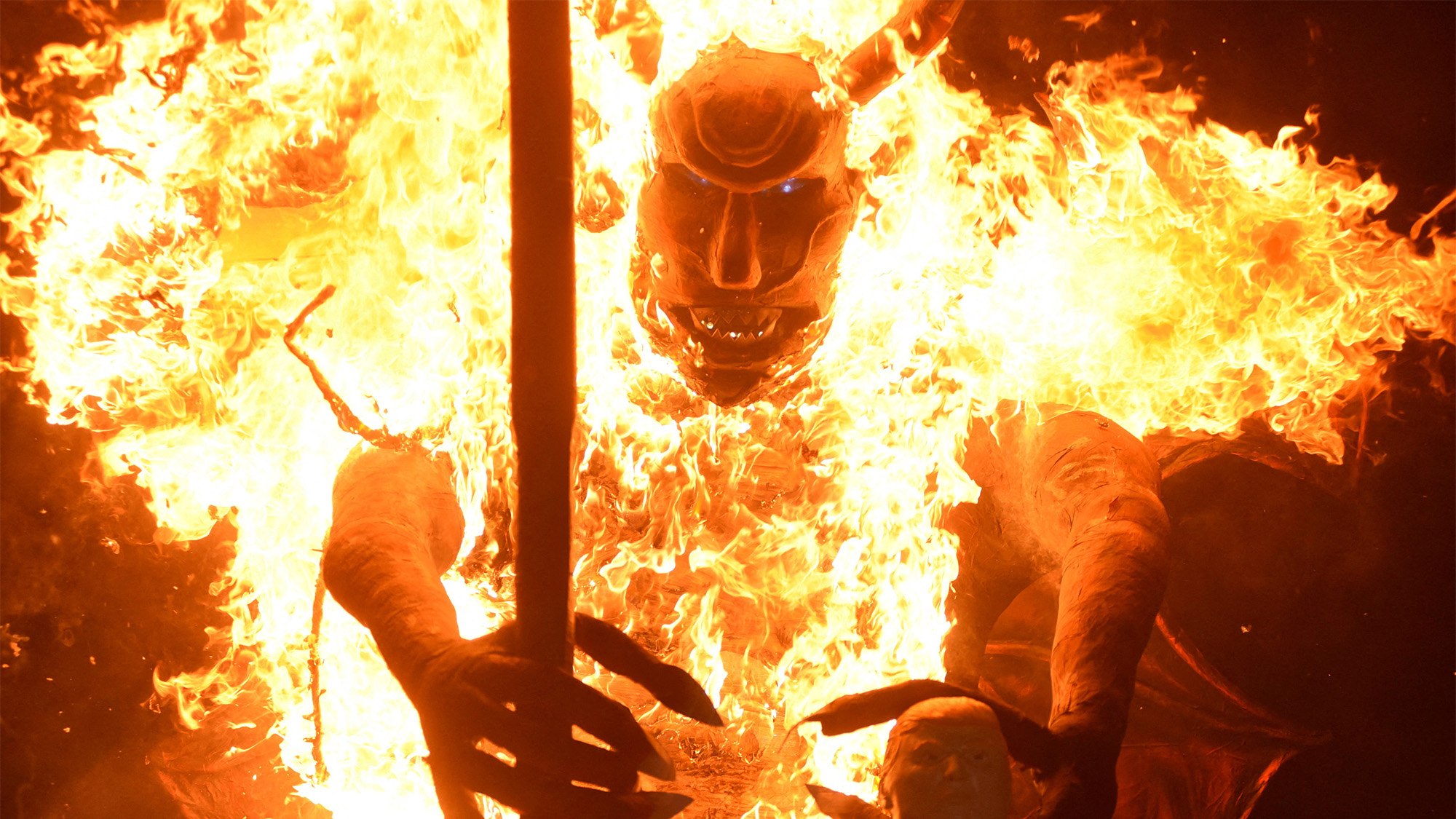How the GOP burned a generation of political talent
The Republican Party burned its bench in 2016. There's a better way to run primaries.


The Republican Party could learn something important from the Democratic Party — namely, how to be less democratic.
This is not a joke. The GOP needs to learn how to ward off unserious or institution-destroying candidacies. The two truly viable candidates left in the Republican Party's presidential nomination, Donald Trump and Ted Cruz, are loathed by the kind of people who make the Republican Party a viable national institution: its donors, elected officials, court intellectuals, and leading activists. Compared to the party's dominant position across the country in statehouses and governor's mansions, Trump and Cruz are profoundly unpopular figures.
If the Republican Party doesn't want a repeat, it should find a way to forbid so many clowns from entering the clown car in the first place, or at least find a mechanism for forcing more out earlier, before serious voting begins.
The Week
Escape your echo chamber. Get the facts behind the news, plus analysis from multiple perspectives.

Sign up for The Week's Free Newsletters
From our morning news briefing to a weekly Good News Newsletter, get the best of The Week delivered directly to your inbox.
From our morning news briefing to a weekly Good News Newsletter, get the best of The Week delivered directly to your inbox.
The GOP should also wake up the fact that having so many candidates in successive election cycles has now exposed and burned a generation of political talent. A nearly 18-month electoral contest with 17 candidates and debates that resemble the Westminster Dog Show more than a Lincoln-Douglas affair just creates more trouble than it is worth. It creates a pickiness in the media and in the electorate. Having so many balls on a billiard table creates odd bounces.
Just think of how many Republican governors have gone to the political graveyard in the last five years, simply because the field was too crowded or they ran into an ugly matchup. Arguably the two figures who had the most success implementing Republican policy ideas, Jon Huntsman and Rick Perry, have likely torched any ambitions they have for high federal office. One branding problem or a bad debate becomes unfixable. Jeb Bush, a moderately successful governor, was able to soak up a ton of intellectual and financial resources in his run, but newcomer Trump became his political kryptonite. Tim Pawlenty and Scott Walker tried to run as frontrunners early in their successive cycles, only to discover that with so many candidates vying for donors, they could not keep up momentum.
Look at the Democrats. In 2000 they had a brief competition between Al Gore and Bill Bradley. In 2004, John Kerry was the de facto nominee after Iowa. The 2008 primary eventually whittled down to three serious contenders: Hillary Clinton, Barack Obama, and John Edwards. Although Bernie Sanders is putting up a brave fight this year, Clinton is protected by having only one opponent and a firewall of party insiders (superdelegates) to save her from unpredictable demotic forces.
Clinton admits that she isn't a natural politician and campaigner like her husband Bill. And the narrowness of the primary truly does protect her.
A free daily email with the biggest news stories of the day – and the best features from TheWeek.com
Consider: In just March, Hillary Clinton made several blunders over just a few days. She infuriated part of the LGBT community by praising Ronald Reagan's handling of the AIDS crisis. She touted the Libya intervention as one in which Americans "didn't lose a single person," forgetting that most Americans would count the four deaths in Benghazi, including her own ambassador, as part of that conflict. She had an unforced error when, in trying to please environmentalists, she promised to "a put a lot of coal miners and coal companies out of business."
But Clinton doesn't face a phalanx of challengers, each of whom could preserve their viability in the race with even a small bounce in the polls or a few good news cycles. In a long, drawn out, multi-candidate race, perhaps Jim Webb could have hit her on jobs in coal country. A leader of the social left could have made hay from her comments about Ronald Reagan. And an anti-war candidate could have slashed her over Libya. Even though Hillary is likely the party's strongest general election candidate, she could have been exposed, and a plurality candidate could have overtaken her.
If the Republican Party is entering into a long period where every presidential contest will always have four or more aspirants, then it should consider instituting some kind of instant runoff voting system in the primaries. While imperfect, IRV is far more suitable for multi-candidate races and better at landing on a consensus figure rather than allowing a plurality to divide and conquer the entire party. An instant runoff system would have given viable national politicians chances at recovering from a one-news-cycle death spiral. It would have revealed the lack of depth of support for candidates who command just one faction of the party.
Or the Republican Party can just keep watching as demagogues and unpredictable debates devour another generation of talent, and their hopes of commanding the ever-more important executive branch.
Michael Brendan Dougherty is senior correspondent at TheWeek.com. He is the founder and editor of The Slurve, a newsletter about baseball. His work has appeared in The New York Times Magazine, ESPN Magazine, Slate and The American Conservative.
-
 Will there be peace before Christmas in Ukraine?
Will there be peace before Christmas in Ukraine?Today's Big Question Discussions over the weekend could see a unified set of proposals from EU, UK and US to present to Moscow
-
 Quiz of The Week: 6 – 12 December
Quiz of The Week: 6 – 12 DecemberQuiz Have you been paying attention to The Week’s news?
-
 The week’s best photos
The week’s best photosIn Pictures A man's best friend, the elephants in the room, and more
-
 Has Zohran Mamdani shown the Democrats how to win again?
Has Zohran Mamdani shown the Democrats how to win again?Today’s Big Question New York City mayoral election touted as victory for left-wing populists but moderate centrist wins elsewhere present more complex path for Democratic Party
-
 Millions turn out for anti-Trump ‘No Kings’ rallies
Millions turn out for anti-Trump ‘No Kings’ ralliesSpeed Read An estimated 7 million people participated, 2 million more than at the first ‘No Kings’ protest in June
-
 Ghislaine Maxwell: angling for a Trump pardon
Ghislaine Maxwell: angling for a Trump pardonTalking Point Convicted sex trafficker's testimony could shed new light on president's links to Jeffrey Epstein
-
 The last words and final moments of 40 presidents
The last words and final moments of 40 presidentsThe Explainer Some are eloquent quotes worthy of the holders of the highest office in the nation, and others... aren't
-
 The JFK files: the truth at last?
The JFK files: the truth at last?In The Spotlight More than 64,000 previously classified documents relating the 1963 assassination of John F. Kennedy have been released by the Trump administration
-
 'Seriously, not literally': how should the world take Donald Trump?
'Seriously, not literally': how should the world take Donald Trump?Today's big question White House rhetoric and reality look likely to become increasingly blurred
-
 Will Trump's 'madman' strategy pay off?
Will Trump's 'madman' strategy pay off?Today's Big Question Incoming US president likes to seem unpredictable but, this time round, world leaders could be wise to his playbook
-
 Democrats vs. Republicans: who are US billionaires backing?
Democrats vs. Republicans: who are US billionaires backing?The Explainer Younger tech titans join 'boys' club throwing money and support' behind President Trump, while older plutocrats quietly rebuke new administration
